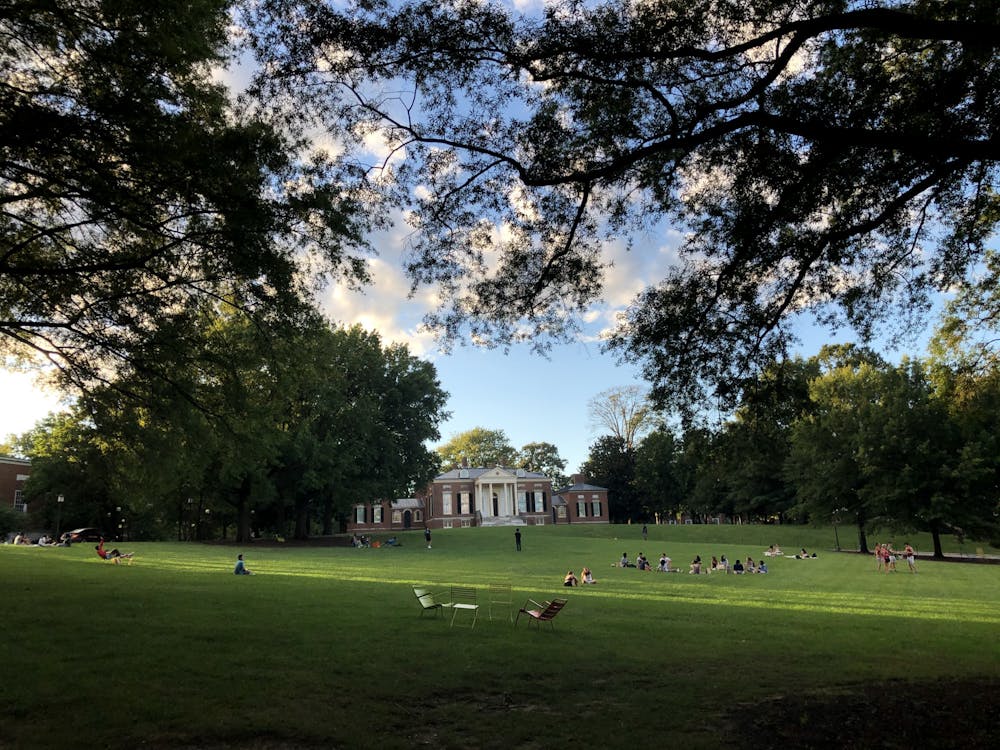Last Thursday, I arrived in Baltimore for the first time since May. I was thrilled to move back into my apartment for the year, see a select number of people who would be accepted into my “quarantine pod” and enjoy a semester of Zoom university. It had been a long summer and an even longer five months of quarantine, so I was looking forward to a big change.
However, when I returned, the literal first thing I saw was a group of 14 people playing beer pong behind a rowhouse.
Seeing people gathered made me upset, not only because I wanted to see several of my friends without fear or concern, but also because their gathering was a direct violation of the University’s on/off-campus safety guidelines. It is extremely frustrating to be doing your part and see others disregard guidelines in place, even when severe consequences are at stake — including suspension and expulsion. University policies require face coverings in public, adherence to group limits and social distancing measures to be followed. Seeing people gather and ignore public health recommendations makes it unsafe for those who are high-risk, further isolating them from others.
As a high-risk individual myself, I returned to Baltimore because both of my parents have to work in-person and are in constant contact with people. I felt safest returning and managing my contacts. However, as people gather and ignore public health recommendations and state guidelines, it becomes less safe for high-risk individuals to be here. People over 60 and those with underlying comorbidities are often in a constant fear, and sometimes even in a state of panic and paranoia, because of how the actions of others could impact them. Something as simple as walking down the street could become extremely dangerous.
What made me most upset was the fact that the University can see what we do. I took a walk around campus and saw 10 to 12 people sitting shoulder-to-shoulder on a single picnic bench on the Breezeway, all of them maskless. The University has staff around campus who are aware of what people are doing and are taking note of our actions.
When planning how the University will operate during 2021, notably the spring semester, decision makers will take our behavior into consideration. If we can’t social distance when completely online and thousands of people are not on campus, how could they expect us to do so when operating in a hybrid model? How would we be able to keep professors, staff and high-risk individuals safe and healthy without excluding them from campus life?
I know I could go on about the things people have lost to the coronavirus (COVID-19), from internships, jobs, research opportunities, connections to professors and classmates to social events and more.
The Class of 2020 lost Commencement and special final moments with friends, and they are left unsure of whether they will see them again. Current seniors had a sudden interruption of their junior year, hoped to return in the fall, but then found the opportunity crushed and now face uncertainty of what lies ahead with their college experience and career prospects. Freshmen and sophomores lost opportunities, like research or internships, that they were looking forward to starting. Juniors lost the thrilling moment of becoming an upperclassman on campus and moving into their first off-campus apartment.
This doesn’t have to be the case. We could potentially have a hybrid or semi-in-person spring semester, if we act responsibly now.
As a University, we can connect again in-person, but we must all do our part. We, as undergraduates, need to show the administration that we are capable of being responsible adults who care for the health and safety of fellow students. We must take responsibility for our actions and recognize that our choices directly impact others. We must be considerate of those who are at high-risk for COVID-19 and of those who are doing their part to stay safe.
So, as you start the fall semester, please think about who you are coming into contact with and whether you are doing your part to ensure we can return to campus. Limit your contacts, wear a mask, wash your hands and most of all, stay socially distanced.
Abbie Bowman is a senior from Little Mountain, S.C. studying Molecular and Cellular Biology and Psychology.





